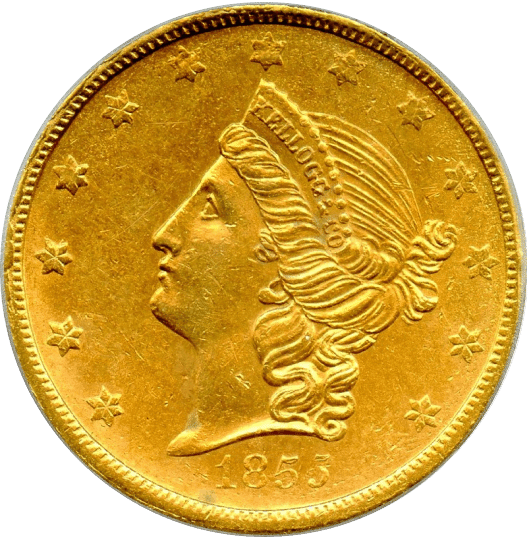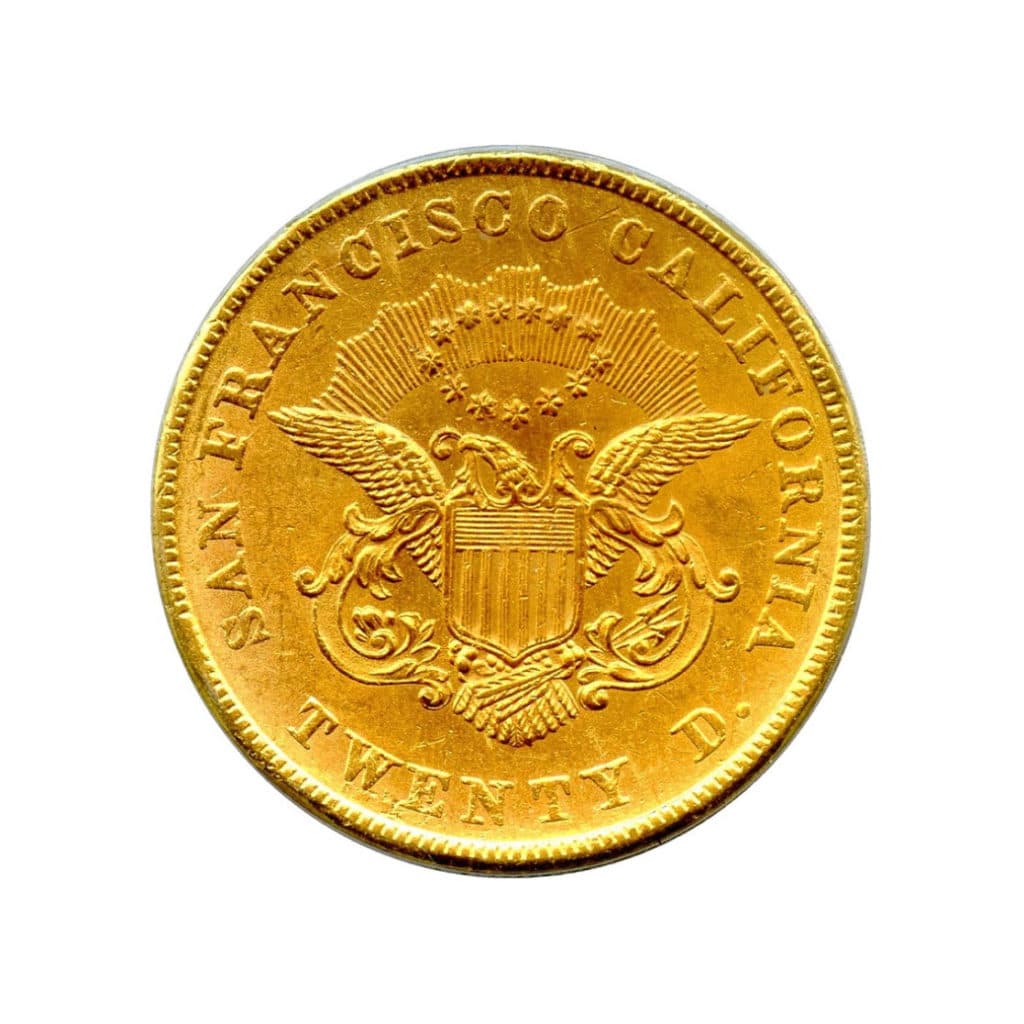Born out of the heart of the California Gold Rush, the 1854 Kellogg $20 coin is a collector's dream and a piece of American history. Learn more about this rare 1854 Kellogg & Co coin.
Born out of the heart of the California Gold Rush, the 1854 Kellogg $20 coin is a collector's dream and a piece of American history. Learn more about this rare 1854 Kellogg & Co coin.

In the early 1850s, the west was seeing huge economic growth as a result of the California Gold Rush. While Gold was flowing out of the mines, settlers, miners, and natives of California were unimpressed by the coins produced by private minting firms and proposed the state establish an assay office (Assay offices are institutions that test the purity of metals to protect a). California citizens wanted a way to regulate the gold flowing into the economy.

This handsome 1854 Kellogg $20 coin is a part of California and American History. This coin is a warm honey-gold color with bronze hues in the protected areas. The Kellogg $20 is uniformly rendered and bold throughout, traces of mint luster are seen within the most intricate central elements on each side.
Many southern states opposed the establishment of a California mint because they didn’t want the competition. Regardless of the opposition, a bill providing for a US Assay Office to be established in San Francisco was passed on September 30, 1850. They were initially only authorized to issue denominations of $50 to $10,000, but there was a huge demand for more practical denominations. A deal was struck to produce $10 and $20 coins through a contract with Moffat & Co.
For a number of reasons, both political and economic, by mid-1853, circulating coinage had fallen to critical levels. Regulations put in place by the Assay Office had discredited virtually all private miners, and even coins that were deemed legitimate faced melting and exportation. It was at this time that former lawyer John G. Kellogg and assayer G.F. Richter opened a gold melting and assaying office in December 1853. Regional banks, including Wells Fargo & Com., wrote to the newly established Kellogg & Richter pleading for them to “supply the vacuum” by issuing their own private coin.
In a letter dated January 31, 1854, Kellogg replied, stating their private coins would be issued within 10 days! Thus, on February 9th, 1854, the first Kellogg $20 coins were issued! Production of the Kellogg & Co. coin continued through 1855, with Kellogg claiming approximately $20 million worth of coins had been struck.